M.Sc. Radiology and Imaging Science Technology (5 Years) - Integrated

Course Overview
M.Sc. Radiology and Imaging Science Technology (5 Years) - Integrated program is a comprehensive 5-year course designed to equip students with advanced knowledge and practical skills across various specialized fields in healthcare technology. This program offers an in-depth exploration into the specialities offered.
The increasing complexity and dependence on technology of health sciences pose great challenges to provide quality health care to all. There is growing importance on the skills required of health-care professionals. India today faces an acute shortage of such skilled manpower. There is a need for developing post graduate level skilled man power to competently assist physicians in highly technology driven medical procedures and diagnosis. The 5 year integrated Master’s Degree courses in different specialties impart specialized education to the young boys and girls on completion of their +2 level of education. These programs are designed to train students in different aspects of health care technologies by giving them extensive theoretical principles, practical skills and clinical internship and research orientation. All these programs are full time (10 semesters) regular courses, offered under choice based credit system. There is no provision for exit in between. The course work will comprise of lectures, practical, clinical training internship and research project, along with skill building through soft skill training. Instructional strategies will also include professional responsibilities and ethics. The major objectives of the programs include preparing professionals to work in public/private health care sector, to engage in health research in institutional and field settings and for teaching /training posts in health institutions.
Learning Outcomes
Gain expertise in diagnostic imaging techniques, including X-rays, MRI, and CT scans, to support accurate patient diagnosis and treatment.
Course Objectives
Here are the objectives for the integrated 5-year Master's Degree programs in health sciences:
- Develop Skilled Technologists: To produce highly competent healthcare technologists capable of assisting physicians in advanced diagnostic and therapeutic procedures.
- Bridge the Manpower Gap: To address the shortage of skilled healthcare professionals in India by training students in high-demand specialties.
- Impart Industry-Ready Knowledge: To equip students with in-depth theoretical knowledge and practical skills required to function effectively in technologically advanced healthcare environments.
- Strengthen Clinical Competency: To provide extensive clinical exposure and hands-on training through internships in real-time hospital settings.
- Promote Research and Innovation: To foster a research-oriented mindset among students and encourage innovation in healthcare practices and technologies.
- Build Professionalism and Ethics: To instill professional values, ethical practices, and soft skills for holistic development and responsible healthcare delivery.
- Enable Career Versatility: To prepare graduates for diverse career pathways including hospital-based roles, academic positions, and research opportunities in health sciences.
- Support National Health Goals: To contribute to the overall improvement of healthcare delivery systems in India by creating a workforce capable of supporting physicians and enhancing patient care outcomes
Learning Outcome
The program offers students five years of intensive training to gain knowledge in their field of specialization. Students are made industry ready to work in a tough healthcare environment where they become innovative in enhancing the available techniques and prove to be a boon in running a technically oriented department at a technologist’s level. The students will engrave a deep discipline to be eligible to work in a corporate environment as they gain their basic subject knowledge during their first 3 years and advanced knowledge in subsequent years of the course.
Curriculum
Semester 1
- Anatomy (CC)
- Physiology (CC)
- Biochemistry (CC)
- Basics in Medical Physics& Electronics (AECC)
- English and Communication skills (SEC)
- Introduction to computers (SEC)
Semester 2
- Microbiology (CC)
- Pathology (CC)
- Pharmacology (CC)
- Environmental Science and Community Medicine (AECC)
- Medical Ethics & Safety (GE)
- Statistics and research methodology (SEC)
Semester 3
- Anatomy, Physiology, Pathology and Pharmacology related to Radiology- Theory (CC)
- Anatomy, Physiology, Pathology and Pharmacology related to Radiology -Practical (CCP)
- Radiological Physics and Dark Room Techniques Theory (CC)
- Radiological Physics and Dark Room Techniques Practical (CCP)
- Basic Principles of Hospital Management (GE)
- Comprehensive viva : Anatomy, Physiology, Pathology and Pharmacology related to Radiology (AECC)
Semester 4
- Radiology equipments -Theory (CC)
- Radiology equipments- Practical (CCP)
- Positioning Radiography and Contrast Procedures - Theory (CC)
- Positioning Radiography and Contrast Procedures- Practical (CCP)
- Health Care Management (GE)
- Comprehensive Viva: Clinicals in Radiology equipments and Positioning Radiography and Contrast Procedures (AECC)
Semester 5
- Basic and Advanced Ultra Sound Imaging - Theory (CC)
- Basic and Advanced Ultra Sound Imaging - Practical (CCP)
- Basic and Advanced CT Scan - Theory (CC)
- Basic and Advanced CT Scan - Practical (CCP)
- Hospital Products, Promotion, Sales & Public relations (GE)
- Physician's Office Management (GE)
- Comprehensive viva: Clinicals in Basic and Advanced Ultra Sound and CT Imaging (AECC)
Semester 6
- Basics and advanced MRI - Theory (CC)
- Basics and advanced MRI - Practical (CCP)
- Interventional Radiological procedures and Basic angiography- Theory (CC)
- Interventional Radiological procedures and Basic angiography - Practical (CCP)
- Anesthesia for specialties (Including Critical Care Assistance and Ventilation ) Paper -II Practical (CCP)
- Trauma & Cardiac Life Support (GE)
- Comprehensive viva: Clinicals in advanced MRI and Interventional Radiological procedures (AECC)
Semester 7
- Project / Systematic Review (DSE)
- Comprehensive viva (SEC)
Eligibility
- Should have completed the age of 17 years on or before 31st December of the year of admission.
- Candidate must have passed HSC/CBSE/ISCE in subjects of Physics, Chemistry, Biology/Botany Zoology and English individually.
Student Life
News And Events
100% Guaranteed Placement Assistance
Your career is our commitment!
